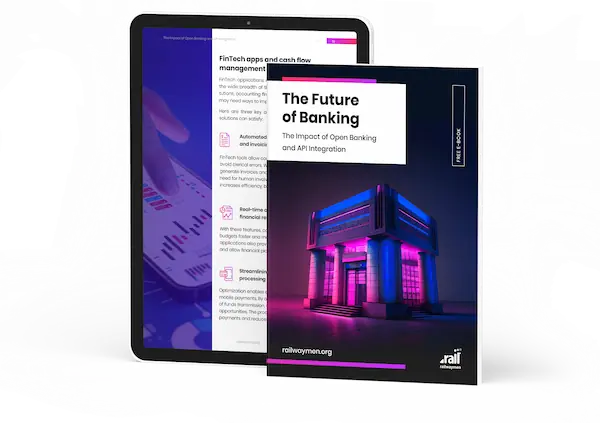The introduction of financial technology has brought about significant changes in the investment landscape, revolutionizing the way individuals participate in financial markets. FinTech apps have emerged as powerful tools that enable the democratization of investments, providing access, convenience, and enhanced user experiences. In this article, we will delve into the transformative impact of apps based on financial technology on investment practices and highlights key aspects that a comprehensive article on the topic should contain.
Table of Contents:
-
Advantages of FinTech apps over traditional investment methods.
- The Future of FinTech Apps in Democratizing Investments.
General overview of FinTech Apps
Financial technology applications, are software platforms or mobile applications that leverage technology to deliver financial services and solutions. FinTech applications play an important role in the investing business by allowing individuals to access and manage their investments in a simple and effective manner.
The growth and popularity of these types of apps have been remarkable recently. This surge can be attributed to several factors. Firstly, advancements in technology have made it easier and cheaper to develop and deploy such applications. This has lowered the barriers to entry, allowing more startups to enter the market and offer innovative solutions.
Secondly, the widespread adoption of smartphones and the increasing connectivity of individuals have created a fertile environment for fintech apps to thrive. With smartphones becoming an essential part of people's lives, accessing investment services through mobile applications has become more convenient and accessible.
Additionally, the changing demographics and evolving consumer preferences have played a role in the popularity of fintech apps. Millennials and younger generations, who are more comfortable with technology and seek digital solutions, have shown a strong inclination towards fintech apps for their investment needs.

Advantages of Fintech apps over traditional investment methods
-
Accessibility - Fintech apps provide individuals convenient access to financial possibilities and marketplaces. Users may invest in a wide range of financial products from the comfort of their own homes, including equities, bonds, mutual funds, and cryptocurrencies.
-
Cost-effectiveness - Traditional investment methods often involve high fees, commissions, and minimum investment requirements. On the other hand, FinTech based apps typically have lower fees and provide investment options with no or low minimum investment amounts.
-
Transparency- Financial technology provides users with real-time data, market insights, and portfolio tracking tools. This allows investors to monitor their investments, track performance, and make informed decisions based on up-to-date information.
-
Automation and Efficiency - Features of FinTech apps can provide personalized investment recommendations based on individual risk profiles and goals. Automated portfolio rebalancing and tax optimization can also help investors efficiently manage their portfolios.
-
Customization - Fintech apps often introduce new investment products, strategies, and technologies, such as fractional investing, social trading, and AI-powered analytics. Thanks to them, users are able to customize their investment strategies and tailor them to their specific needs and preferences.

FinTech apps have gained popularity due to their ability to democratize access to investment opportunities, reduce costs, increase transparency, and provide personalized and convenient investment solutions. As technology continues to evolve, we can expect further growth and advancements in FinTech apps, shaping the future of the investment industry.
How Does FinTech Democratize Investing
The Technology within the finance industry has democratized investing by breaking down barriers, reducing costs, and providing innovative tools and platforms that empower individuals to participate in the financial markets. It has created a more inclusive and accessible investment landscape, enabling more people to take control of their financial futures.
Lowering barriers to entry
FinTech platforms have greatly decreased the obstacles to investment. Traditional investing frequently necessitates large sums of money, complicated paperwork, and specialist skills. FinTech firms, on the other hand, have developed user-friendly systems that enable consumers to begin investing with tiny sums of money. This has made investing options available to a much larger populace.
Fractional investing
These platforms pioneered the notion of fractional investment, which allows individuals to hold a fraction of a share or asset rather than a complete unit. This enables individuals to invest in high-value assets such as stocks, real estate, or fine art with lesser sums of money. Individuals may now diversify their portfolios and engage in previously inaccessible areas thanks to fractional investment.
Automated investment platforms
FinTech companies have created robo-advisors, which are automated financial systems that manage investment portfolios using algorithms and artificial intelligence. Robo-advisors provide tailored investment advice as well as automated portfolio management for a fraction of the cost of traditional financial advisors. As a result, professional investment management has become more inexpensive and available to a broader audience.
Mobile investment apps
The increased usage of smartphones has enabled FinTech to develop user-friendly investing apps. Individuals may use these applications to effortlessly manage their assets, make transactions, and access financial information while on the road. The ease of use and accessibility of mobile investment applications has made investing more accessible, especially to younger generations, who are accustomed to utilizing mobile devices for a variety of purposes.
Social trading and education
Social aspects on FinTech platforms allow users to communicate, discuss investment ideas, and learn from one another. Individuals can use social trading platforms to observe and copy the investing techniques of successful traders. This social side of investing aids in democratizing access to investment information and allows everyone to benefit from a community's collective expertise.
Crowdfunding and peer-to-peer lending
Crowdfunding and peer-to-peer lending platforms have risen as a result of FinTech, allowing anyone to invest in startups and small businesses or lend money directly to borrowers. These platforms enable consumers to diversify their assets outside traditional asset classes and assist businesses or borrowers who may struggle to access traditional finance channels.

Alternative Investment Opportunities of FinTech
Finance technology is a game-changer for retail investors, providing them with a wealth of education and resources to make informed investment decisions. This empowerment is especially important for novice investors, who may lack the knowledge and confidence to navigate the complex world of investing. With the help of the right tools, retail investors can now take control of their financial future and make the most of their hard-earned money.
In addition to education, FinTech offers the convenience of robo-advisors and algorithm-based investing. These technologies enable investors to access professional investment advice and portfolio management at a fraction of the cost of traditional wealth management services. By leveraging the power of fintech, retail investors can now enjoy the same level of expertise and convenience previously reserved for high net worth individuals.
Investment Education and Resources
Education is a critical component of successful investing. Recognizing the potential of informed investment decisions, many consumers are taking steps to gain the knowledge and confidence needed to navigate the world of investing. Fintech apps have stepped up to the plate, providing valuable resources and support for novice investors.
Robo-Advisors and Algorithm-based Investing
Mentioned innovative technologies offer a cost-effective and convenient way to access professional investment advice and portfolio management. By using computer algorithms to efficiently manage and optimize portfolios, robo-advisors and algorithm-based investing have made it easier than ever for retail investors to achieve their financial goals.
In addition to being cost-effective and convenient, robo-advisors and algorithm-based investing also provide a more personalized experience for investors. By speaking with knowledgeable humans in the investment process, investors can receive advice tailored to their individual needs, giving them the reassurance they need to make informed investment decisions.

FinTech Apps and its impact on Private Market Investments
Fintech apps are not only revolutionizing the public investment market, but also making a significant impact on the private market. By offering unprecedented access to private companies and startups, fintech apps are transforming private market investments and opening up new opportunities for retail investors.
As those apps expand their reach into the private market, they are providing investors with more diverse investment options and the ability to access unique asset classes. This expansion offers the potential for higher returns and greater diversification for investors, further democratizing the world of investing.
Access to Private Companies and Startups
The private market offers a wealth of exciting investment opportunities in private companies and startups, which were once inaccessible to the average investor. Fintech apps are tearing down these barriers, enabling investors to access private companies and startups with ease. This increased access allows retail investors to diversify their portfolios further and potentially reap greater rewards from their investments.
Private markets offer a variety of alternative investments. These may include private equity, private lending, venture capital and real estate assets. By providing access to these investments, fintech apps are empowering retail investors to take advantage of the potential benefits of private market investments, such as higher returns and greater diversification.
Expansion into Alternative Investments
Fintech apps are not only providing access to private companies and startups, but are also rapidly expanding into alternative investments. These investments, which include assets such as cryptocurrencies, real estate, and commodities offer the potential for higher returns, diversification, and unique opportunities for investors.
The expansion of fintech apps into alternative investments is a testament to their continued growth and adoption. As they continue to innovate and break down barriers, fintech apps are democratizing the world of investing, providing retail investors with a greater range of investment opportunities and the ability to achieve their financial goals.

The Future of Fintech Apps in Democratizing Investments
The future of fintech apps in democratizing investments is promising, with the exciting integration of decentralized finance (DeFi) and continued growth and adoption on the horizon. As DeFi technologies continue to evolve and gain mainstream acceptance, they have the potential to further expand access to alternative investments and open up new opportunities for retail investors.
The ongoing growth and adoption of fintech apps are also driving innovation in the industry, resulting in improved efficiency, faster payments, more effective risk management, and lower costs for financial services. As fintech apps continue to break down barriers and level the playing field for all investors, the future of investing looks bright and inclusive.

Summary
In conclusion, financial technology-based apps are revolutionizing the world of investing by making it more accessible, affordable, and inclusive for everyone. By breaking down barriers and providing powerful tools and resources, fintech apps are democratizing investments and empowering individuals to take control of their financial future.
Now is the time for all investors, regardless of their financial background, to seize the moment and take advantage of the tremendous potential that fintech apps have to offer.
Explore FinTech solutions developed by Railwaymen
Check out the Case Studies section of the Railwaymen's website to learn more about FinTech solutions in practice. There are numerous stories about the development of our applications and the progression of each project from the first meeting with the client.
This is a solid dose of information that will help you open up more to the world of finance and understand its dependencies.
Do you want to know what factors are shaping the banking environment?
We have created an e-book "The Future of Banking: The Impact of Open Banking and API Integration" that provides a detailed analysis of the benefits and challenges of these adjustments. Whether you are a bank chairman or an entrepreneur, you will gain valuable information that will help you take your business to the next level with our assistance.
DOWNLOAD NOW






